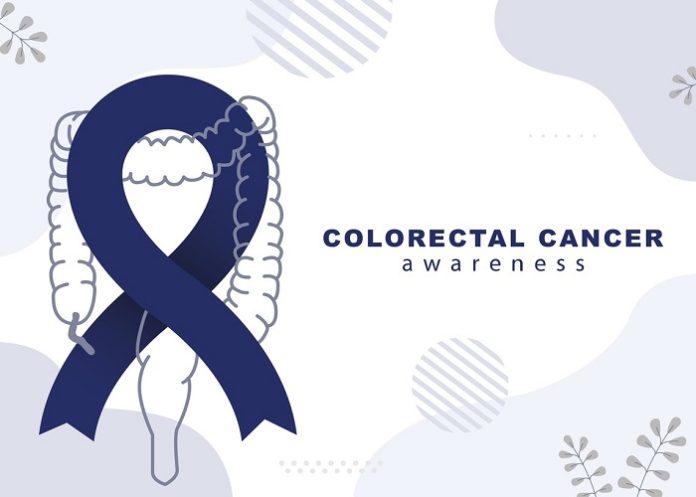Researchers have suggested that childhood exposure to a toxin produced by bacteria in the bowel could be contributing to the worrying rise of colorectal cancer in under-50s around the world.
Doctors have been concerned by the increase in young adults with bowel cancer in recent decades, with some of the steepest increases reported in England, New Zealand, Puerto Rico and Chile.
While soaring rates of obesity, widespread junk food and physical inactivity have been highlighted as potential drivers of the disease, the latest study finds that harmful strains of the common gut microbe E coli may be involved, reports The Guardian.
Professor Ludmil Alexandrov at the University of California-San Diego said: “We think what we’re seeing is an infection in early life that subsequently increases the risk for developing colorectal cancer in the future.”
To shed more light on the trend, an international team led by the University of California-San Diego analysed DNA from 981 colorectal tumours from patients in 11 countries in North America, South America, Asia and Europe.
Most of the tumours were from older people, but 132 were early-onset bowel cancers.
The scientists found that hallmark genetic mutations caused by colibactin, a toxin secreted by some harmful strains of E coli, were more than three times as common in tumours removed from patients under 40 as in those from patients over 70.
The same signature mutations were also more common in countries with the highest rates of early-onset bowel cancer, according to the study, which has been published in Nature.
The patterns of mutations are thought to arise when children are exposed to colibactin before the age of 10. The mutations disrupt DNA in cells in the colon and may raise the risk of developing bowel cancer before the age of 50.
Global health records show bowel cancer rates increasing in adults under 50 in at least 27 countries, with incidence roughly doubling every decade for the past 20 years. If the trend continues, bowel cancer could become be the leading cause of cancer death in that age group by 2030.
The study does not prove that colibactin drives early-onset bowel cancer, but if harmful strains of E coli are involved, it raises further questions about how they arose, how children are exposed and whether interventions, such as probiotics, can replace the offending microbes.
In the US and the UK, about 30% to 40% of children had colibactin-producing E coli in their bowels, Alexandrov said.
One possibility is that the harmful strains of E coli evolved and gained an advantage in the gut by producing colibactin. While the toxin damages the person’s DNA, it may help the microbes outcompete their neighbours.
“This kind of microbial chemical warfare is quite common in evolution, where producing a toxin helps shape the niche or suppress microbial competitors,” Alexandrov said.
According to Cancer Research UK, which funded the research under the Cancer Grand Challenges partnership, more than half of bowel cancers are preventable, with a quarter linked to eating too little fibre, 13% linked to eating processed meat, 11% driven by obesity and 6% caused by alcohol.
A further 5% are attributed to inactivity.
“Many early-onset colorectal cancer patients appear to have been exposed to a toxin called colibactin, produced by some strains of the bacteria E coli in early life,” said Dr David Scott, the director of Cancer Grand Challenges at Cancer Research UK. “It’s unclear how the exposure originates, but we suspect that a combination of factors, including diet, may intersect during a crucial phase in the development of the gut microbiome.
“This study adds an important piece to the puzzle of early-onset cancers, but it isn’t conclusive, and more research will be needed to establish a definitive link between colibactin and an increased risk of early-onset colorectal cancer. Other Cancer Grand Challenges teams are looking deeper into the microbiome and other environmental factors to uncover what’s behind the global rise.”
Study details (preview)
Geographic and age variations in mutational processes in colorectal cancer
Marcos Díaz-Gay, Wellington dos Santos, Sarah Moody et al.
Published in Nature on 23 April 2025
Abstract
Colorectal cancer incidence rates vary geographically and have changed over time. Notably, in the past two decades, the incidence of early-onset colorectal cancer, affecting individuals under the age of 50 years, has doubled in many countries. The reasons for this increase are unknown. Here, we investigate whether mutational processes contribute to geographic and age-related differences by examining 981 colorectal cancer genomes from 11 countries. No major differences were found in microsatellite unstable cancers, but variations in mutation burden and signatures were observed in the 802 microsatellite-stable cases. Multiple signatures, most with unknown etiologies, exhibited varying prevalence in Argentina, Brazil, Colombia, Russia, and Thailand, indicating geographically diverse levels of mutagenic exposure. Signatures SBS88 and ID18, caused by the bacteria-produced mutagen colibactin, had higher mutation loads in countries with higher colorectal cancer incidence rates. SBS88 and ID18 were also enriched in early-onset colorectal cancers, being 3.3 times more common in individuals diagnosed before age 40 than in those over 70, and were imprinted early during colorectal cancer development. Colibactin exposure was further linked to APC driver mutations, with ID18 responsible for about 25% of APC driver indels in colibactin-positive cases. This study reveals geographic and age-related variations in colorectal cancer mutational processes, and suggests that early-life mutagenic exposure to colibactin-producing bacteria may contribute to the rising incidence of early-onset colorectal cancer.
See more from MedicalBrief archives:
Getting to the bottom of cancer rise among young people
Millennials and Gen Xers have higher risk of 17 cancers – US study
Vital early signs of colon cancer in young adults – US study

